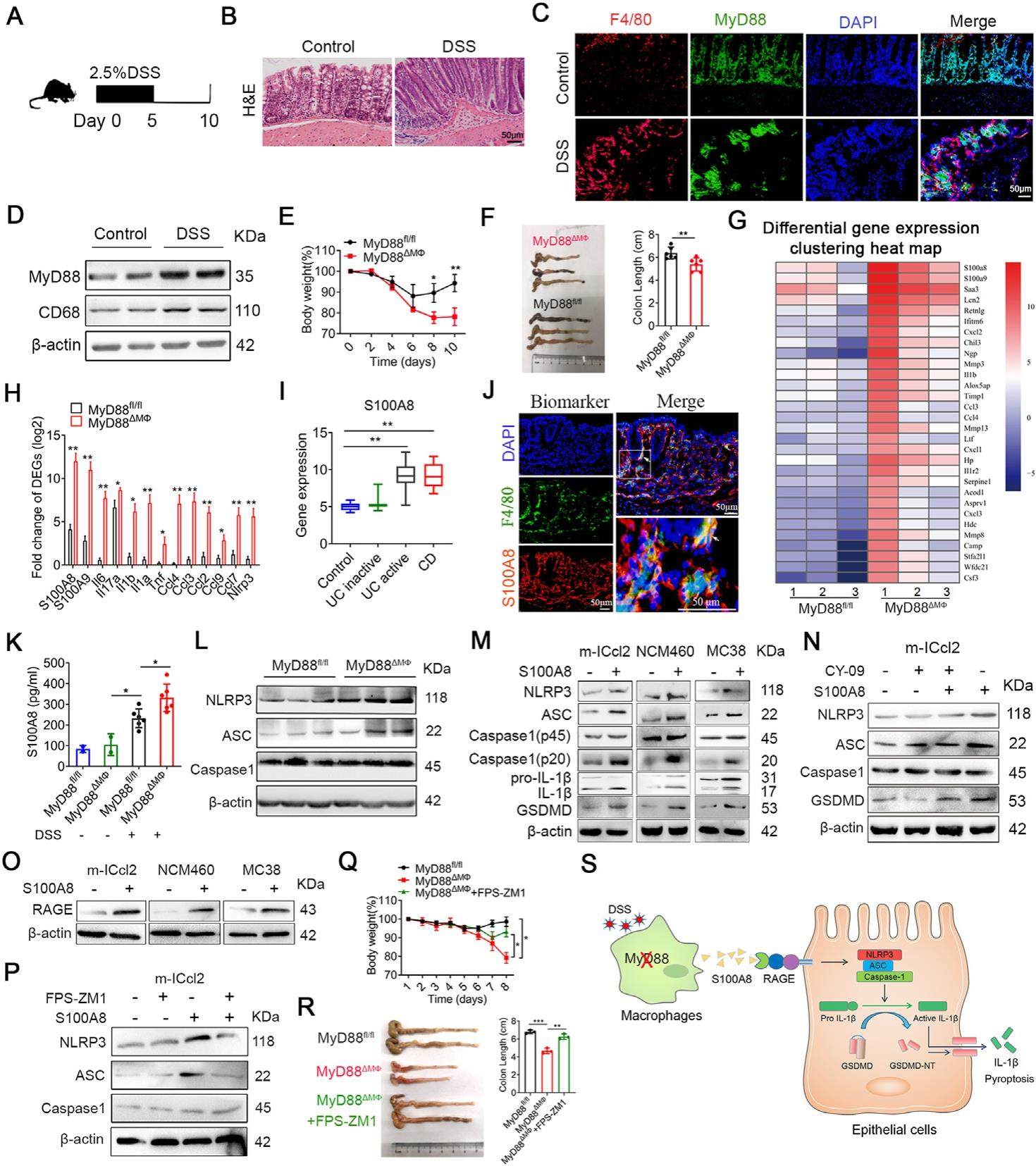
MyD88 in macrophages protects against colitis via inhibiting the activation of NLRP3 inflammasome in epithelial cells


The signal adaptor myeloid differentiation primary response 88 (MyD88) of Toll-like receptor (TLR) signaling is universally expressed in immune cells and non-immune cells, and myeloid cells play a significant role in modulating colitis. Macrophages are myeloid lineage cells which is important for maintaining intestinal homeostasis in inflammation. And macrophages can recognize invading pathogens through pattern recognition receptors (PRRs), such as TLRs and the nucleotide oligomerization domain (NOD) -like receptor family, pyrin domain-containing 3 (NLRP3), and quickly infiltrate the injured site leading to inflammation. MyD88 expression in myeloid cells can rescue the intestinal injury induced by dextran sulfate sodium (DSS) in murine models. However, the mechanism whereby MyD88 works in myeloid cells and influence the progress of the disease remain elusive. In this study, we used DSS induced colitis mouse model and found Lysm-cre-MyD88fl/fl (MyD88ΔMΦ) mice were more susceptible to colitis. The deficiency of MyD88 leads to up-regulation of S100A8, which activate NLRP3 inflammasome and their associated pyroptosis in intestinal epithelial cells in a RAGE dependent manner. Thus, MyD88 signaling in macrophages, which is necessary to maintain intestinal homeostasis, crucially prevents the development of colitis. Our results may shed new lights on potential targets that can be applied in colitis therapy.
